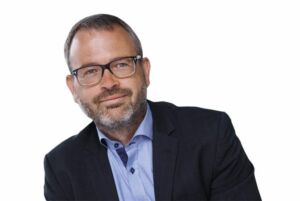The life science business is big business for Copenhagen and the region – a development that started about a thousand years ago and continues to this day. But the glorious past is no guarantee for future success. We need to take new steps to stay ahead and make more groundbreaking discoveries, generate growth and create even more jobs.
Pooling resources
More Danish-Swedish collaboration is one of the keys. Life science is exactly like any other business, and then some! It is global, high stakes, highly competitive and extremely capital and knowledge-intensive. To succeed you need excellence, critical mass, many resources and all the edge you can get. From a Danish-Swedish perspective, we need to pool our resources more. We need to co-operate to compete.
With relatively newly installed national governments in both countries, we have a unique opportunity to sit down with the relevant national and regional authorities, synchronise, and optimise our overall strategies and prepare ourselves for the ongoing global must-win-battle for talent, innovation and growth, whose outcome will decide which regions and nations will prosper and who will wither.
A laissez-faire, complacent approach and a lack of will to invest in and explore the regional synergies will result in us losing ground in the global competition.
Beyond the Øresund region
The first step is regional. The life science industry, the regional authorities and the universities represented on the board of Medicon Valley Alliance have recently agreed on a strategy that will strengthen regional life science collaboration and facilitate the networking and co-operation needed to position Greater Copenhagen and Skåne as the most competitive and vital life science cluster in northern Europe.
The next step is to bring the rest of Denmark and Sweden, including Aarhus and Stockholm, closer together. The country’s politicians should strive to align their strategies and give priority to the ‘Scandinavian perspective’. Many of them are expected to attend an ‘Innovation and Growth’ discussion at Medicon Valley Alliance’s annual meeting in November, and I hope that this will only be the beginning.
Healthcare of the future
All this might sound like life science navel-gazing. But the trajectory from discussions like these are likely to impact not only on the overall prosperity of the region, but also the kind of healthcare system we can expect in the future.
As we all know, demographic developments are putting all European governments under pressure. New technologies within disease prevention, diagnostics and treatment of acute and chronic diseases will define and challenge our healthcare systems in the future.
An ambitious collaborative Danish-Swedish approach will not only strengthen our competitiveness in the global life science industry but also positively influence future regional, national and global healthcare systems. That should count for something when political priorities are made!
















